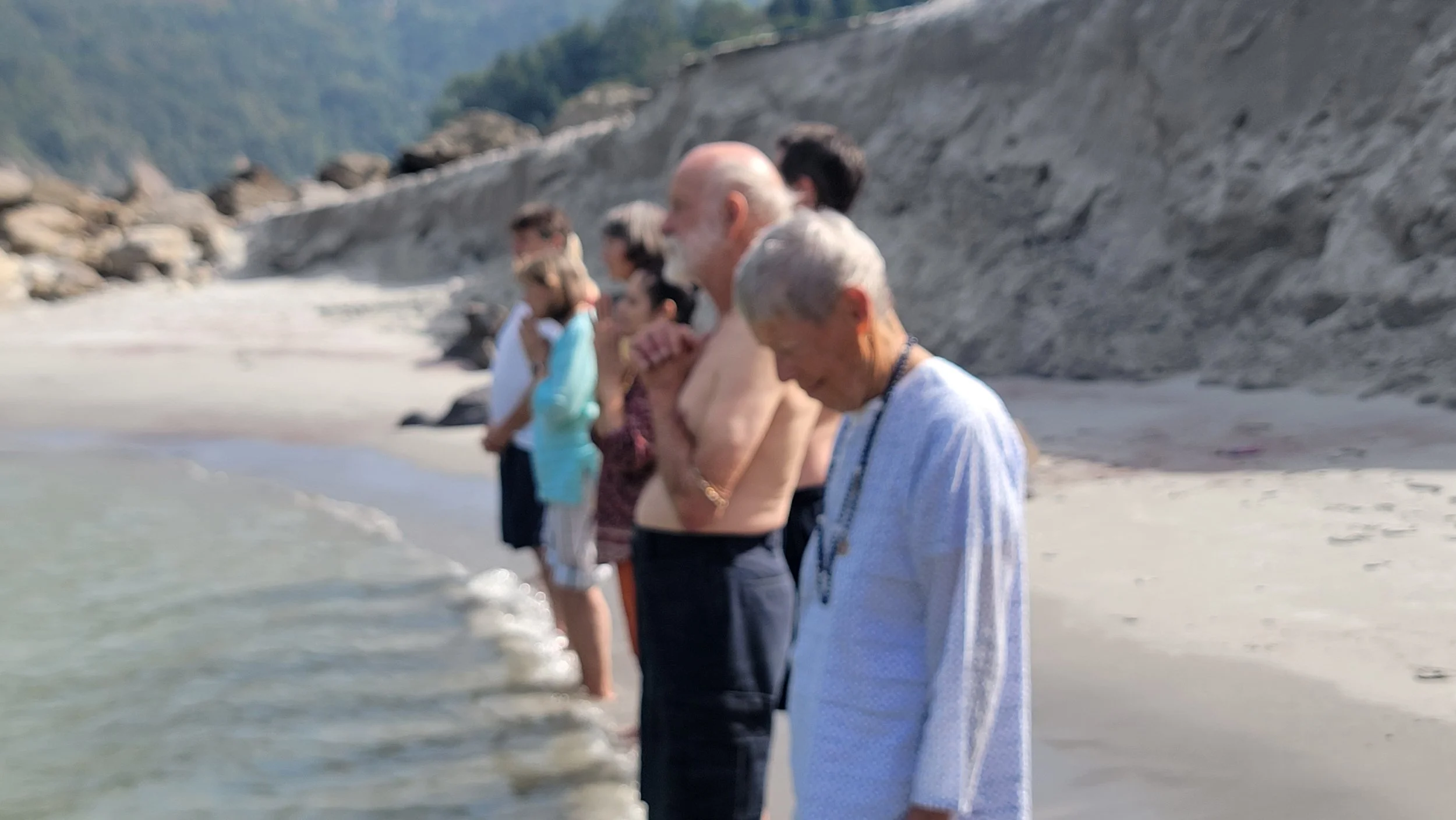The mountains in Badrinath have an awe-inspiring quality to them. The mountain air is cold and crisp. The most auspicious time to see the Lord of Badri is at 4:30 am. We all got up, showered, and were ready to leave our hotel by 4 am in the morning.
At the Badrinath temple
We were tightly packed into the tiny sanctum for over 3 hours to witness the magnificent "abhishek" (sacred ablution) of the lord. The chanting of the vedas was interspersed with stories from Srimad Bhagavatham extolling his glory and the loud clap of cymbals and drums. All of us were deeply inspired by the whole experience - those who grew in the Indian tradition and those to whom the entire ceremony was foreign. The power it carried was other worldly.
A late afternoon excursion to a sacred cave where sage Brighu meditated was notable. It is much easier to feel the sacredness of this remote mountain shrine when one steps a few hundred feet away from it. When one steps away from the crowds, and the noises, the snow-capped peaks, the bright blue water of Alaknanda, and the rugged mountain terrain all draw one into an inner stillness that is precious.
The mountains above Badrinath
When we visited the village of Mana the next day the experience was all the more amplified as we stood witness to many high snow clad peaks watching over this sacred cove in the lap of mother nature. What better place could there be for Vyasa to write the Mahabharata and all the great scriptures? We went to the cave very early in the morning to avoid the crowds and were duly rewarded with a profound serenity that enveloped the whole town.
Both on our way up and the way back from Badrinath we stopped at Joshimath - a town made famous and sanctified by Adi Shankara's penance. Our experience in this town on the way up was so deep that we made time to visit some of the meditation caves a second time and enjoy the deep stillness. Shankara's name, image, and living vibrations fill every sacred space here. Our meditations in the mountain caves here were some of the deepest in the trip.
At the temple in Joshimath
One of the evenings in Badrinath, we had the opportunity to have satsang with Swami Svarupananda Puri, a sadhu who lives in these mountains and enjoys greeting truth seekers. Of the many things he shared with us, one particular thought made a firm imprint on me, "At the very moment the feeling of dispassion arises in the heart, renounce everything. Don't wait or think."
On the way to and from Badrinath we stayed overnight at another high mountain resort, where we got the opportunity for early morning visits to the Ganges (to dip in the cold waters and meditate by banks). Experiences such as these are powerful in their simplicity and in being able to take us out of the preoccupations of our life, perhaps even making us nostalgic of a past life spent in pursuit of God.
We descended to Rishikesh, and our destination was an idyllic mountain resort/spiritual community an hour north of Rishikesh. It would be unfair to summarize our experiences here in just a few lines. However, since I shared quite a bit last year after my trip, it may suffice to say that our time here was one of healing and inward relaxation. Visits to the ancient meditation cave of Vashista Gufa and the blissful private beach on the Ganges that we had access to gave us an experience of India quite different from the busy pilgrimage sites or cities.
Dipping into Ganges followed by purification, Private beach near Anand lok




